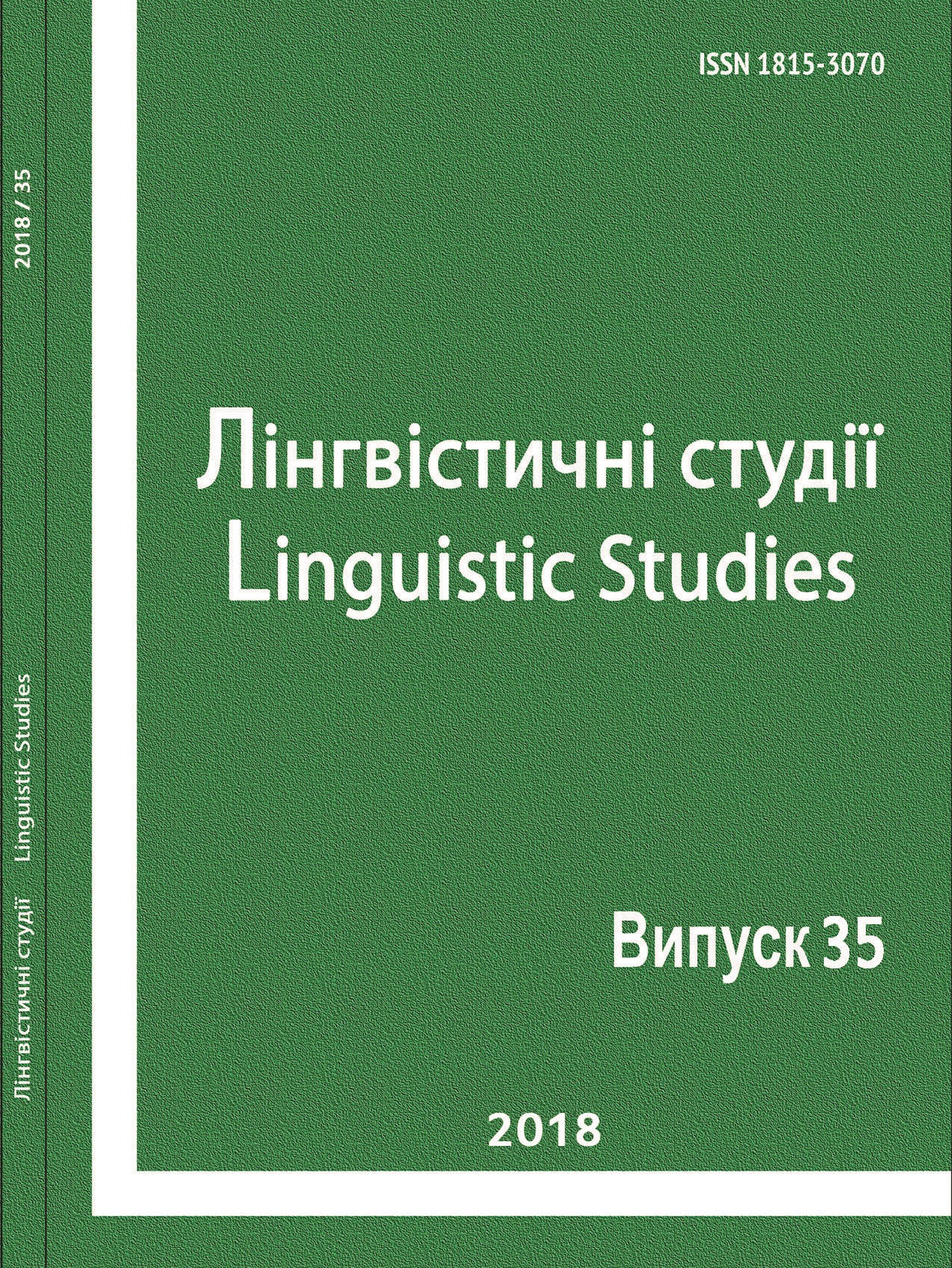German Ethno-Uniqueness of the Concept Kummerspeck and Its Sense Correlates.
DOI:
https://doi.org/10.31558/1815-3070.2018.35.15Keywords:
linguo-culturology, concept, linguo-specifics, ethno-uniqueness, stress obesityAbstract
The ramified conceptual sphere SPECK in German linguo-culture results in the relevance of the concept KUMMERSPECK. It is not popularity of meat and sausage products with a large amount of lard among Germans but the obesity as a big national problem that makes this conceptual sphere relevant for representatives of German ethnicity. This is definitely global but not local problem. However, the Germans are especially aware of the consequences that their love of lard has. It is not surprising neutral words that name concepts related to the natural processes of gaining fat by human or animal can get ironic figurative meanings. This is exemplified by the composite Babyspeck: women gain weight after childbirth, which formed a figurative meaning of the lexeme Babyspeck in German. Similarly, a figurative meaning of the composite Winterspeck (winter fat) was formed.References
Dorren, Gaston. Lingo: Around Europe in Sixty Languages. New York: Atlantic Monthly Press, 2015. Print.
Kosmeda, Tetiana. “Aktualizacija Katehorij “Linguonacyonalizm” i “Linguopatriotizm” u Suchasnomu Movoznavstvi (Actualization of Categories “Linguonationalism” and “Linguopatriotism” in Modern Linguitics)”. Linguistychni Studiji (Linguistic Studies) 32 (2017): 66–70. Print.
Mizin, Kostiantyn. “Poshuk Linguospecyfichnosti Movnych Odynyts’ u Kontrastyvnych Studijach: Metodolohichni Pryntsypy (Seeking Linguistic-Specific of Language Units in Contrastive Studies: Methodological Principles)”. Naukovij vìsnik Mìžnarodnogo gumanìtarnoho unìversitetu. Serìâ Fìlologìâ (International Humanitarian University Herald. Philology) 25 (2016): 123–128. Print.
Mizin, Kostiantyn. “Lіngvokul’turnij Koncept “Kapcі”, abo shhe Raz pro Metodologіchnі Slabkі Mіscja Lіngvokul’turologіji (The Linguocultural Concept “Slippers” or Once Again about Methodological Flaws in Linguoculturology)”. Movoznavstvo (Linguistics) 6 (2017): 16–29. Print.
Mizin, Kostiantyn. “Linguoculturologija i Linguonacyonalizm: Vytoky Dyskusiji (Linguoculturology and Linguonationalism: Sources of Discussion”. Teoretychna i Dydaktychna Filolohija (Theoretical and Didactic Philology) 25 (2017): 251–264. Print.
Pavlova, Anna. “Mozhno li Sudit’ o Kul’ture Naroda po Dannym ego Yazyka? (Is it Possible to Judge a Culture of Nation by the Data of its Language?)”. Antropologicheskiy Forum (Anthropological Forum) 16 (2012): 3–60. Print.
Pavlova, Anna and Bezrodnyy, Michail. “Khitrushki i Jedinorog: iz Istorii Lingvonartsyssyzma (Tricks and Unicorn: from the History of Linguonarcisism)”. Ot Lingvistiki k Mifu: Lingvisticheskaya Kul’turologiya v Poiskakh “Etnicheskoy Mental’nosti” (From Linguistics to Myth: Linguistic Culturology in Search for “Ethnic Mentality”). Sankt Peterburg: Antologiya, 2013. 138–159. Print.
Prozhylov, Aleksandr. “Lingvokontseptologiya, Neohumbol’dtianstvo i Etnostereotipy (Linguoconceptology, Neo-humboltianism and Ethnostereotypes)”. Ot Lingvistiki k Mifu: Lingvisticheskaya Kul’turologiya v Poiskakh “Etnicheskoy Mental’nosti” (From Linguistics to Myth: Linguistic Culturology in Search for “Ethnic Mentality”). Sankt Peterburg: Antologiya, 2013. 263–277. Print.


